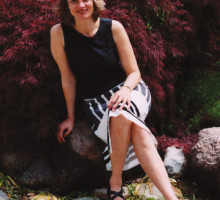
Reviews
The thesis of The Lyric Theory Reader—that the very existence of the genre is more a critical extrapolation than anything solid and real—may seem to be itself a kind of critical conceit, but only because the argument serves the Reader exceptionally well as a cogent frame for taking stock of a diversity of approaches. Accordingly, the Reader would seem especially useful as a primer for up and coming scholars... Overall, the Reader should be considered essential in the formation of a thoughtful scholar of poetry and its criticism.
Through an astute selection of essays and a series of brilliant commentaries on them, Jackson and Prins show that although the way we conceive lyric is a recent invention that embodies a singularly modern and Western set of cultural ideas and values, we uphold lyric as the universal model of what poetry is and should be. Reading The Lyric Theory Reader is an exhilarating experience. In collecting what are arguably the most important modern statements about lyric, it opens up the diverse acuity of commentary on this most enduringly canonical of literary categories, and in that process encourages our most searching reflections on the historical existence of literary forms.
A distinct account emerges of the life-history of the conception of the lyric as a genre—from the moment of its recognition as a genre that is said to have always been central, to the New Critical insistence that lyric is available because everyone can overhear it, to the increasing equation of lyric with poetry that occurs as the collapse of the genre system washes over both the novel and the lyric, leaving narrative and poetry in its wake. The Lyric Theory Reader is a worthy counterpart to Michael McKeon’s Theory of the Novel. It will be essential reading for anyone interested in the lyric, in poetry.
Virginia Jackson and Yopie Prins have done tremendous service to poetics in the nuanced and comprehensive work of constellation and accompanying commentary—providing a model of editorial lucidity, a library in a box, and a ceaselessly generative contradiction which is in the end perhaps itself the strongest argument for the lyric’s eccentric centrality.
Book Details
Acknowledgments
General Introduction
Part I. How Does Lyric Become a Genre?
Section 1. Genre Theory
Section 2. Models of Lyric
Part I. Twentieth-Century Lyric Readers
Section 3. Anglo- American New
Acknowledgments
General Introduction
Part I. How Does Lyric Become a Genre?
Section 1. Genre Theory
Section 2. Models of Lyric
Part I. Twentieth-Century Lyric Readers
Section 3. Anglo- American New Criticism
Section 4. Structuralist Reading
Section 5. Post- Structuralist Reading
Section 6. Frankfurt School and After
Section 7. Phenomenologies of Lyric Reading
Part III. Lyric Departures
Section 8. Avant- garde Anti-lyricism
Section 9. Lyric and Sexual Difference
Section 10. Comparative Lyric
Contributors
Source Acknowledgments
Index of Authors and Works







